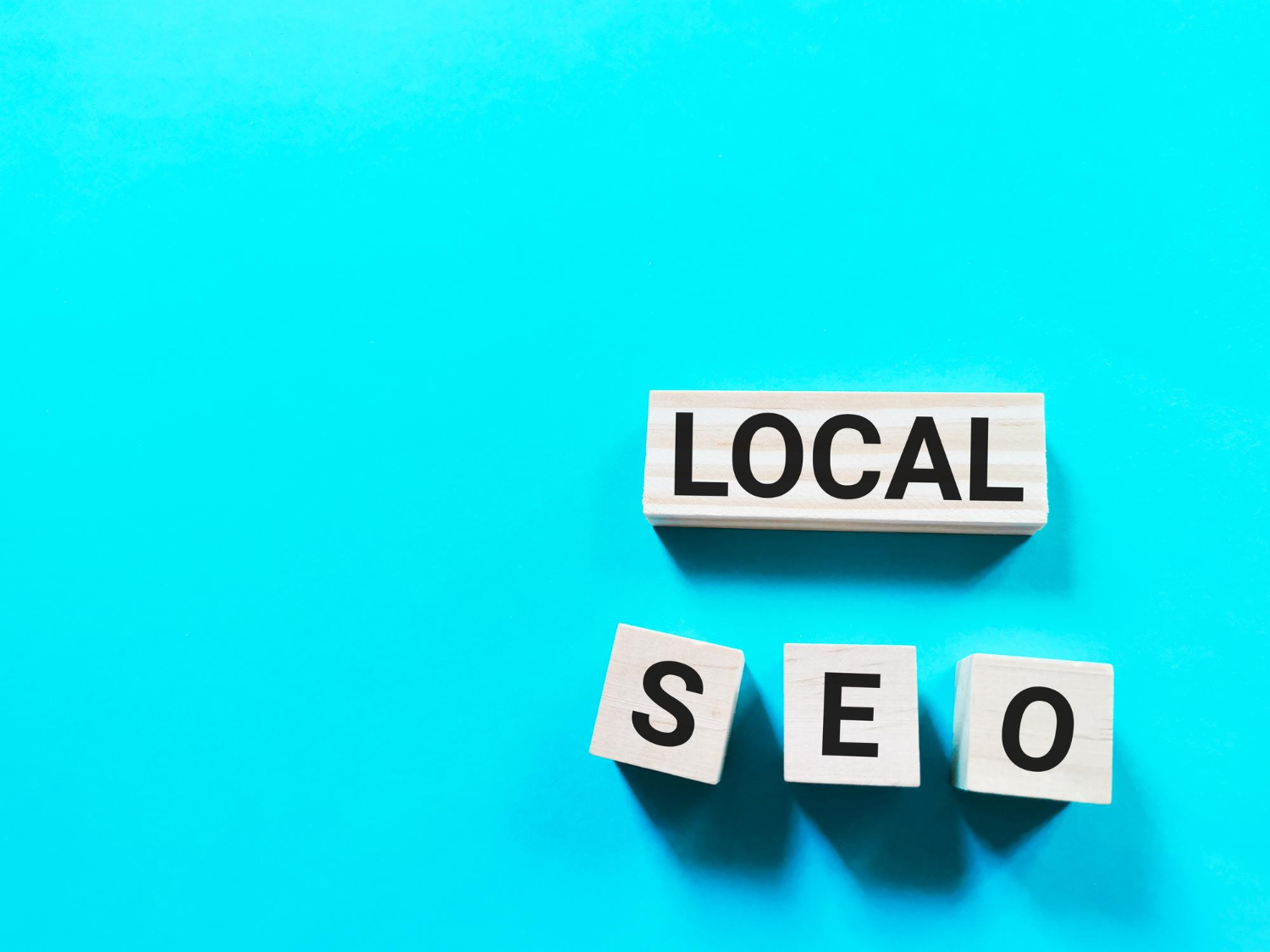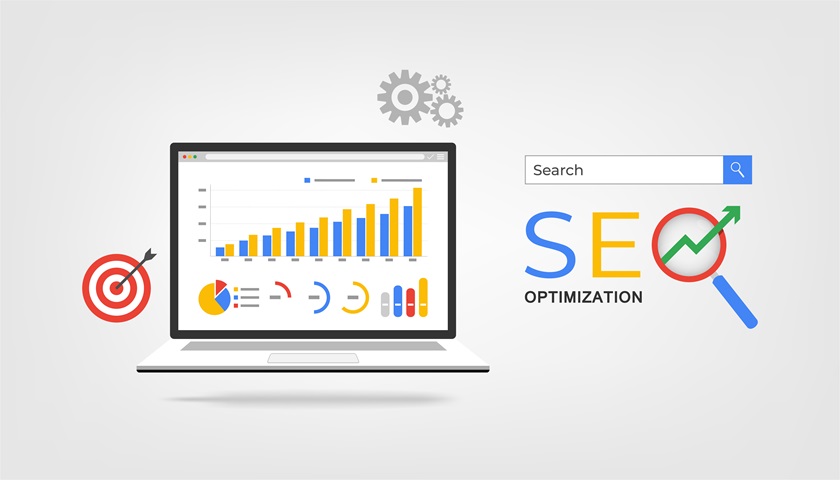Local SEO, or Local Search Engine Optimization, is a digital marketing strategy focused on improving the online visibility of businesses or organizations in specific geographic areas. It aims to enhance a company’s presence in local search results when potential customers search for products, services, or information related to their current location.
Local SEO strategies involve optimizing various online assets, such as a website, Google My Business profile, and other online directories, to ensure that the business is easily discoverable by local searchers. This can include providing accurate contact information, integrating location maps, optimizing on-page content with local keywords, encouraging customer reviews, and building local citations across different online platforms.

The ultimate goal of local SEO is to help local businesses reach and engage with their target audience more effectively, attract local online customers as well as foot traffic to physical stores. It is a valuable marketing approach for online stores, services brick-and-mortar businesses, service providers, and any organization seeking to connect with consumers within their specific geographical area.
Search engine like Google is smart enough now. Even if you are searching for a restaurant without the typical search term “near me”, you will find the restaurants that are closer to you. According to thinkwithgoogle.com, “Over the last two years, searches for local places without the qualifier “near me” have grown 150%, faster than comparable searches that do not include “near me.”
It is expected that in 2024 local search will be higher than the previous years. So, be prepared and make your business enticing to local customers.
Why Local SEO is important for small businesses?
Local SEO is very important for small businesses for several compelling reasons:
Enhanced Visibility:
Local SEO helps small local businesses to appear prominently in local search results, making it easier for potential searchers to find and connect with them when searching for products or services in their area.
Targeted Audience:
Small businesses target basically a specific geographical area. Local SEO ensures that your business reaches a relevant local audience actively seeking the products or services you offer, increasing the chances of conversion.
Cost-Effective Marketing:
Compared to other paid marketing methods, local SEO is cost-effective. It allows small businesses to reach their local audience without the high costs associated with paid marketing campaigns.
Competing with Larger Brands:
Local businesses have a good chance of winning the competition over the larger brands locally. By optimizing for local search, smaller businesses can gain an edge and stand out in the search results.
Google My Business:
A well-optimized Google My Business (GMB) profile is an integral part of local SEO. It provides essential business information to the customers, such as location, hours of operation, reviews, and images, directly in search results and on Google Maps.
Building Trust and Credibility:
Positive local online reviews and a strong local online presence help small businesses build trust and entice potential customers. These factors can significantly influence purchase decisions.
Community Engagement:
Local SEO encourages small businesses to engage with their local community through social media and other online platforms. This fosters a sense of community and can lead to loyal customer relationships.
Measurable Results:
Local SEO efforts can be tracked and measured, allowing small businesses to understand the impact of their marketing strategies and make data-driven decisions to improve their online visibility.
Future Growth:
A strong local SEO strategy can serve as a foundation for expanding your business’s reach to nearby areas or even nationally as you grow. It’s a scalable approach that can evolve with your business.
Ways to Improve Your Local Rankings:
You need to work both onpage & offpage to get the expected result. Keep in mind that SEO takes time before you see significant results. So, be patient & follow the proper ways. In this section, we will discuss both the onpage & offpage strategies.
Part 1: On-Page Strategy
1. Localized Content:
Local customer loves local content. So, create content that is relevant to your local audience. Write blog posts, articles, and landing pages that address local topics, events, and interests. It will help your business to appear in local searches.
2. Localized Keywords:
To write engaging local content you need to incorporate local keywords. Incorporate local keywords into your website’s content and meta tags. Use keyword phrases that include your city or region to enhance your local search visibility. For instance, if you want to promote your Fort Worth SEO agency landing page, integrating the keyword “Fort Worth SEO agency” in title, meta, heading and slug will enhance the ranking of your page on SERP.
3. Integrate Location Map on Landing Pages:
Include a location map that provides your business’s physical address or services area, local phone number, and a map with directions. This address also aligns with your Google My Business (GMB) listing.
4. Use Videos for Local Customers:
You will be amazed to know that video search is localized. That means, if your video content matches the relevancy of local consumers’ search query, then there is a great chance of appearing your video on the SERP. So, Create and share videos that showcase your products, services, or customer testimonials. These videos can highlight your business’s personality and offerings, making it more enticing to local customers.
5. Mobile-Friendly Website:
Do you know? Maximum “near me” searches are done from mobile devices. With the increasing use of smartphones, local searches have become prevalent. Local SEO ensures your business ranks well in these mobile search results, capturing on-the-go customers.
6. Proper NAP on Pages:
Maintain consistent and accurate Name, Address, and Phone (NAP) information on all pages of your website. This consistency builds trust with search engines and users.
Part 2: Off-Page Strategy
7. Optimize Google My Business (GMB):
It’s the most lethal weapon for local SEO. For the maximum “near me” or location-based queries, GMB profiles display higher than the organic search results. GMB also enhances the ranking of your website in SERP. So, claim and optimize your GMB profile. Complete all sections of your GMB listing, including business description, photos, hours of operation, and customer reviews. Regularly update your GMB profile with new posts and announcements.
8. Create Local Citations:
Local citation is another pillar of Local SEO. Ensure that your business information (NAP) is listed accurately on various online local directories, review sites, and social media platforms. Consistent citations help validate your business’s existence and credibility.
9. Local Backlinks:
Build local backlinks from reputable local websites and directories. Links from local news sites, chambers of commerce, and community organizations can boost your local SEO efforts.
10. Engage in the Local Community:
-Actively participate in the local community by attending or hosting events, sponsoring local initiatives, and engaging with your community on social media platforms. Positive community involvement can lead to more local mentions and visibility.
Additional Points
11. Run a Local SEO Audit:
-Periodically conduct a local SEO audit to identify and address issues with your website’s on-page and off-page SEO. This audit can help you make necessary adjustments to improve your local search rankings.
This audit must include: –
- Content audit to ensure the content is suitable for the local audience or not.
- Backlink or listing audit to ensure the NAP is correct or not.
- Check mobile friendliness.
- And other technical issues to avoid the Google penalty.
12. Local Link Building Tool:
Consider using local link-building tools to identify potential link opportunities, track your backlink profile, and monitor your local online presence.
By implementing a combination of on-page and off-page strategies, you can significantly improve your local search rankings. Keep in mind that local SEO is an ongoing process, and consistent efforts are required to maintain and enhance your position in local search results.
DIY or Hire a Local SEO Company: What’s Right for Your Business?
When it comes to enhancing your online presence through local SEO, the choice between doing it yourself or hiring a professional local SEO company can be a hectic decision for your business. The DIY approach offers autonomy and cost savings, but one must have an understanding of SEO updates, technical aspects, and a significant time commitment to be successful. Conversely, hiring a local SEO agency brings the benefits of expertise, industry-specific tools, and a dedicated team focused on optimizing your online visibility. The decision hinges on your level of proficiency, available resources, and the extent of SEO investment required. Carefully evaluating these factors will help you make the most suitable choice to align with your business objectives and secure a competitive edge in the digital landscape.






